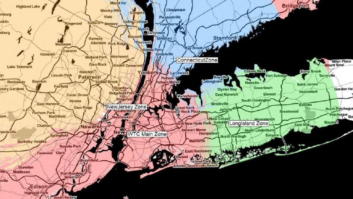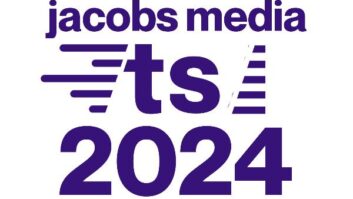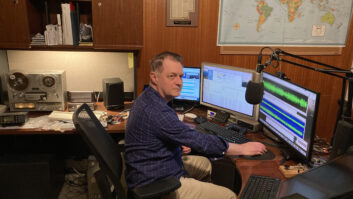2001 Salary Survey – Write-in Comments
Sep 1, 2001 12:00 PM, By Cindy Holst, associate editor
The Salary Survey contained additional questions that allowed respondents to comment on radio issues.

Increasing workload
We asked engineers if computer/IS/IT functions are now considered a part of the engineering department�s responsibility. A majority of respondents (64.6 percent) answered �yes.� This makes sense when we consider that a large number of respondents listed automation, computer technology and increased use of the Internet as the changes in the industry that are having the greatest effect on their careers.
Technology in radio
Two write-in questions of great interest to respondents were �What changes to the radio broadcasting industry do you feel are having the greatest effect on your career,� and �Do you think that IBOC (in-band, on-channel) DAB (digital audio broadcasting) is the correct technology for radio broadcasters in the United States to pursue?�
In answer to the first question, the most common responses were automation, computer and/or Internet usage, and consolidation.
The second question received a variety of answers from positive to neutral to negative.
What changes to the radio broadcast industry do you feel are having the greatest effect on your career?
1. The elimination of the “three-year” ownership rule. 2. The elimination of the �seven- seven- seven� station ownership rule. 3. The proliferation of satellite and lower cost telephone line- based transmissions.
Abandonment of public service responsibilities by commercial broadcast groups and general listener dissatisfaction with �cookie-cutter� commercial radio drive more listeners to public radio all the time. Not that I�m complaining about that.
Acquisition of more stations without addition of engineering personel.
Addition of IS/ IT duties.
Allowing owners to own so many stations in smaller markets is devastating to little guys like me, to advertisers and sales people. It destroys what radio was all about… localism.
As corporate entities continue to try and get blood out of a turnip, every dollar matters more than ever. Plus, with so many stations under one roof, the responsibilities have grown to the point where time management is as important as anything.
As more technology (broadcast and IT) is used for broadcasting activities, I feel engineering jobs are more secure and engineering is becoming more important than in the past.
Automation and Voice Tracking are killing the industry. Soon this industry will be run by computer geeks instead of professionals.
Changes and modifications are now more software related than hardware related. You must be computer and digital literate to be a competent engineer.
Computerized operations are making me more of a programmer and trouble- shooter in the IT sector; while throw- away quality electronic peripherals are down- sizing the engineering needs of many stations.
Concentration of ownership of radio stations in the hands of fewer and fewer corporations increases the disconnect between owners and station operations. This is a negative trend that has been getting worse for the past 20 years.
Consolidation and computerization, requiring increased skill sets. Consolidation continues to open up more full- time chief positions, but the station load per engineer is disproportionate to what any normal human being should be asked to handle.
Consolidation following deregulation and the intense drive to maximize profits. Leaner and meaner is the way. It will be interesting to see how broadcasters respond to the challenge of: 1. digital and its promotion 2. emerging wireless technologies
Consolidation, and the �whoring� of spectrum by the FCC
Corporate ownership continues to expect more work, more knowledge at less pay from their technical people without having any knowledge of what we do for a living
Digital movement; station conglomerates (i.e., Clear Channel buying the world); web streaming
Engineering talent disappearing in the radio stations makes for a greater demand for outside technical talent.
Engineers are frequently leaving the field. Many station groups have a callous contempt for engineers. Feeling like they place a load on finances with no tangible controbution to the bottom line.
Frequent ownership changes leave employees with much insecurity. Technology allows us to do more, but we lose good people with the streamlining.
IS/ IT functions becoming fundamental to broadcast engineering
Lack of new trained electronics/ RF technicians and engineers.
Loss of Qualified Engineers
More responsibility for things such as PC networks, website management, etc. without additional salary or benefits for taking on such oversight. I love radio, but I could make a heck of a lot more money in the computer world and have been contemplating that.
Multiple ownership of stations in a single market by large, money-driven groups. Radio used to be fun and we made a little money doing it. Now, it�s a corporate job like any other, run by a bunch of bean counters who don�t know the first thing about entertainment.
New engineers are not coming into the industry, old ones are leaving. The good news is the quality engineers command higher salaries. The bad news is that the kid behind the Radio Shack counter is becoming the engineer for small market stations.
We do not have a full time engineer. I�m Operations Manager and IT guy. I contract RF work. I do light studio work cords, boards and solder.
When the FCC dropped the limit on how many Radio Stations one company could own. Consolidation has cost many jobs to be lost in this field.
When the FCC severely eased the licensing requirement for engineers and only required a �chief operator� for radio stations, the owners/ managers basically dumped high cost engineers for contractings.
With consolidation comes the pressure to do more with fewer people. Increased cash flow demands have also had a dramatic affect on my position.
Do you think that IBOC (in- band, on- channel) DAB (digital audio broadcasting) is the correct technology for radio broadcasters in the United States to pursue? Please explain.
The rest of the world has mainly adopted Eureka 147 using varied carriers, but committing to the new technology and systems. 2. Any system IBOC, Eureka 147, IBAC etc will require the consumer to purchase a new receiver anyway.
A qualified yes. If the system works well the possible interactivity with listeners will help radio. There are also other possible uses that might bring in additional revenue.
A reasonable approach. Some transmitter replacements required, in many cases, well overdue.
A uniform broadcasting system is always desired over a fragmented one.
a very cautious yes, still thinking it over
Actually, IBAC( in band adjacent channel) would yield great opportunity for enhancement without displacement of existing frequencies although efficiency issues on combining need to be addressed
Analog is still sufficient, e. g. �If it ain�t broke, don�t fix it.� A car radio with typical ambient noise in the car negates the finer points of digital technology.
Any �rebalancing� of the allocation scales will be nuked by owners with entrenched interests in existing allocations. Nothing other than IBOC, preserving existing allocations, will fly.
Anything that can improve the old methods is OK in my book. I personally don�t listen to radio because of, among many other issues, quality. DAB or IBOC will certainly improve the quality of the signal. Talent is another issue that needs to be addressed.
As a marketing concept, the public has been sold on the term �digital� as being associated with high quality, hence, despite that being a complete fallacy, it makes marketing the transition a near slam dunk. IBOC, as currently envisioned and being developed.
As long as it ends up being easy for the listener to use, it doesn�t really matter what format we choose as broadcasters.
Attempting to use IBOC will create a poorer quality signal for the listener on both analog and DAB than if separate spectrum were used.
Broadcasters (Radio and TV) should take a real hard look at CSA/ Wireless services, and get back onto the streaming band- wagon. I see IBOC being about as successful as AM stereo, unless the technology will be incorporated into the new DAB receivers.
By using the existing frequency plan an orderly step- by- step transition can occur. A new bandplan would either have a period of chaos during transition, or would be an abrupt stop of the existing structure and start of the new structure.
Compatibility during transition to digital is just as important now as it was when color was coming into television. And, secondarily, this is the way the industry seems to be steering and apparently wants to be steered.
Compatibility with existing broadcasting methods in my opinion has been and always will be the best way to go. If �THEY� want a �DIGITAL ONLY� band, that�s fine, leave the present broadcast systems alone. No more spectrum grabs please!!
Consumers will demand the personal customization that will be available only with a digital format, although there will be a significant number of consumers with no interest in spending money on new equipment or spending more than they would for analog eq
DAB; Yes… IBOC; No. Eureka already exists in Europe and Japan and works. The airwaves are for the �U. S. citizen� not the �broadcasters� something the FCC can�t fathom.
Digital audio, in and of itself, is no big deal for our listeners. But the additional digital information (song and artist titles, traffic and weather, etc.) will be the value- add that makes the transition worthwhile.
Eureka systems would probably never be implemented in the small non-rated markets. How could you create a common stick and metro signals when there is no metro and sometimes only one or two stations per county?
Eureka-147 always seemed to me to be the way to go; understand the barriers to implementing said in U. S. but, still felt that would have been best (esp. as regards universality of use)
Eureka- 147 is far superior to IBOC. On AM IBOC will present a rushing noise in wide- banded receivers. On FM in congested areas, it will cause some interference problems. The AM IBOC will not ever sound as good as it should.. There isn�t enough bandwidth
Eventually radio, if it doesn�t change from its �analog roots�, will be overrun by Internet streaming or other �live� media. Giving listeners more of what they want in �technical evolution� seems to be one of the best avenues for keeping a hold on the audio.
For AM broadcasting it�s a real step up. For FM broadcasting the jury is still out. IMHO for FM the money spent will show little return for many years…. the public has not embraced DTV.
For AM.. ABSOLUTELY!!!! FM? No way. An absolute expensive and to what advantage? I do not see it. I attend NAB and such sessions and still fail to justify FM going IBOC.
From a technical �nerdy� type view, I think it�s a new an exciting technology! This industry is going �forward� into the millennium, whether ya like it or not. From a program manager�s view, I guess it�s another place �on the dial� to go to.
From what I have read the Eureka system is better than the IBOC. The IBOC from the information I have gathered, to me is an attempt by good engineers and reliable organizations to be mediocre.
Having tested the technology on one of our class B FM stations, I�ve heard the results first hand. The only downside is dealing with the mandatory audio delays.
However, think it will have a rough start. It is based on 1989 technology. No receiver manufacturers have signed on to build for it yet; the public doesn�t expect much from radio and could have a hard time spending hundreds of dollars on radio just because
I am not in favor of direct satellite delivered audio, if it will eventually replace the local RF transmission facilities. My business is sustained by designing, installing, and servicing RF transmission systems.
I answered yes, but have mixed feelings. I�m not fully convinced that the average consumer cares about DAB. Wait until their first experience with having to reboot their television or not being able to receive a digital TV station due to terrestrial interference.
I believe service to the local area is, and will continue to be, the most important aspect of broadcasting. Satellite delivered programming can not inform the public of loacl news, information etc.
I did once. Not any more. I have been squarely in favor of IBOC from the outset. However, it has taken way too long to get it into the marketplace and I now feel we have given up a crucial marketing advantage to DAB via satellite which can do much more. I do not think that the average/ mass consumer will spend the extra money to purchase a receiver for what is perceived to already be an inferior product (programming, too many commercials, etc) with inferior audio quality (due primarily to excessive process)
I don�t believe IBOC proponents have built a sufficient case for the American public to replace every radio they now own. Further, if radio is eventually forced to go all- digital with no analog fall- back, this will spell the end of the cheap receiver
If WARC has specified that the standard is L- Band for DAB and the rest of the world is following that standard. By opting out we are creating another AM stereo scenario where you have more than one standard
if we do not do it soon, it may go the way of AM stereo. Whatever the system, the time to move is short if broadcasters are to compete with digital sat. and internet services
Improved technology should always be pursued. The challenge is for the industry to evolve with the new technology without destroying our traditional relationship with our listeners. We must provide the services our audience wants.
In order for digital to work reliably in difficult reception environments (ex.: FM multipath), the data must be spread over a large enough segment of bandwidth so that designed- in data redundancy will allow continuous service throughout a multipath event.
In order to survive, the technology must keep up with the times, which means making drastic changes and moving forward
It�s a combination of compromises that do not yield the best possible result for either existing analog and new digital transmission. AM it effects more adversely than FM
It has been discussed and on going for many years and I think something should be implemented to compete for total digital operation in this new century.
It is important to be able to compete with satellite broadcasting and digital delivery systems since consumer expectations are led by other innovations such as portable cds and mp3 players, digital cable, satellite television, even digital cameras.
It seems the only way to limit the expense and keep radio alive into the future, abandoning the band would seem to be a way to get rid of all but the largest most debt free groups.
It seems to me to be the best way to utilize the current frequency allocations.
It�s the only hope for AM channals to ever become competitive with FM
It will level the playing field for struggling AM stations. I see a negative economic impact to the mega station groups (Clear Channel) who are ignoring AM caused by the gradual weakening of there ratings as the resurgence of am dilutes the markets further
It will ruin the existing services for the 7- 10 years USA digital is calling for a complete phase in to all digital. By that time, most listeners, especially those to AM stations, will have been long gone to other services. Digital radio has not caught on
It�s an expensive waste of resources that provides no better service to the listeners than does the current analog product. And I don�t see a payback.
It�s badly flawed (it�s going to be a beast to keep functioning) and it�s incompatible with what everyone else in the world is using. Somebody has to take thne blinders off… this is not the way to go!
It�s not a world standard like the present system of amplitude or frequency modulation. In the future, receivers will be incompatible in different parts of the world unless they�re an expensive mix of technologies.
It�s probably fine for FM, but I fear the AM band is still going to have the same interference issues it always has.
Should go to a whole new band and leave the old (especially AM) in place as it has its place. AM Radio has the most penetration of any media and will never be equaled by the new stuff. It is extremely simple to demodulate and can serve well in disaster
The only way that IBOC will work is if the standards and requirements are lowered sufficiently. The system used in Canada and Europe is superior in every way. I don�t understand the tremendous push to make IBOC work . . .
The US should pursue DAB as outlined by Canada and many other major countries. Why try to be different?
With the upcoming direct from Satellite delivery of �radio formats�, I believe DAB will just confuse and thin the market further. Sometimes, less is better.
Yes, as long as we migrate towards a full digital standard, gradually phasing out analog FM.
Yes, but only barely. I believe DAB is a solution looking for a problem. IBOC is the only solution available, which preserves the present investment in �larger� facilities vs. �smaller� facilities, e. g. Class C vs. Class A.












